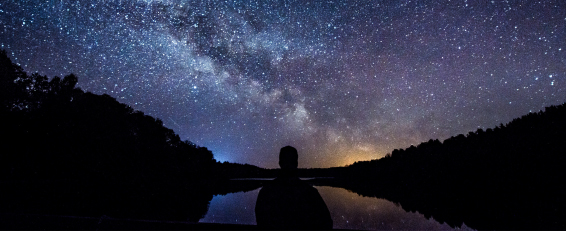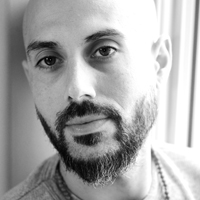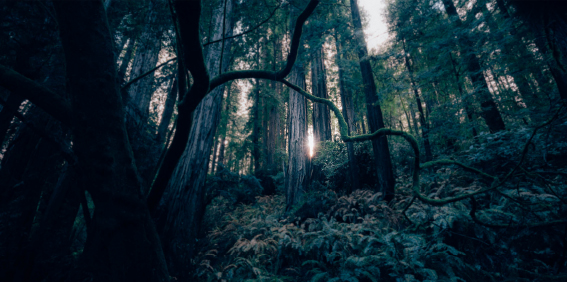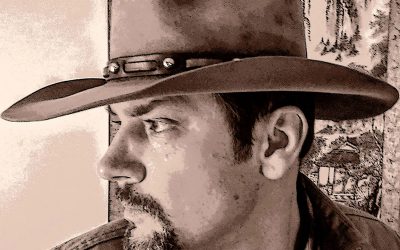“Rage, rage against the dying of the light.”
—Dylan Thomas
My five-year-old is, in many ways, my easiest child, overall. She’s the kind of child that teachers love, the kind of child who people won’t hesitate to watch. “Oh, I’ll watch Calliope anytime!” they’ll say. She can focus easily; she’s kind; she pays attention and wants to please. There’s just that one problem, that moment when it all goes left—the transition. When it’s time to go, she might have a meltdown. When it’s time for bed, she might have a meltdown. When it’s time for a bath, she might have a meltdown.
When it’s time to get out of the bath, she might have a meltdown.
Most parents will recognize this. It isn’t a shock. After all, many young children have trouble with transitions and change. But why? What is it about us—human beings—that makes us so troubled by change? Usually, we adults think of ourselves as having outgrown this problem. But I have been wondering: Do we ever really outgrow our resistance to transition or do we simply have our own, grownup meltdowns on a larger scale?
And is it possible that an entire civilization could have a meltdown—a collective tantrum, if you will—at a time of transition?
***
I recently turned 45. This, in itself, means little to me. Physically, I feel more or less the same as I did ten years ago. But I have noticed, recently, that this has been a time full of surprising changes, changes for which I really was never prepared. I am, like Dante in the famous lines in the beginning of the Commedia, entering the “selva oscura”—the dark wood—in “il mezzo del cammin di nostra vita”—the middle of life’s journey.
For me, this moment brought with it a new phase in my work, the end of a decade of working in the nonprofit world running youth programs and leading an organization. I have had similar changes before—I’ve moved many times, changed course many times—but this felt different. I’ve reached a phase in my life where the stakes are higher, and where the possibilities for the future seem to have narrowed. So it brought with it a great deal of stress.
But the stressful times in life always seem to occur during times of change. Moving. A new job. The beginning or end of a relationship. Even when these are good things, things we want, they bring stress. But I also wonder: how do we collectively manage stress in times of transition? And what happens when an entire species, an entire planet, goes through a period of radical change?
***
News of the end has been unavoidable. Each day we are confronted with stories of burning forests, rising seas, superstorms. Ecosystems are collapsing; biodiversity is crashing.
The focus—understandably, I suppose—has been on how we can save ourselves. That is, practical, technological, political steps to live sustainably on the planet. The harder questions, however, have to do not with the practical steps we might take—these are fairly obvious if we can muster the common sense and political will—but with how we first have to transform our culture, our way of seeing ourselves in relationship.
But the situation is so dire that I wonder if it’s still even possible. Might it be that life, or at least our species, is just a blip, something like a perturbation on the quantum foam, inevitably fated to pass?
Is it possible that humanity is impermanent, our collective lives no different from the individual lives that we know will end? If so, how should we mourn?
What is certain is that the destructive human civilization of global capitalism is inevitably passing away. But we do have a choice as to how we respond to this transition. The easiest choice is to be like five-year-olds and have a collective, planetary tantrum, throwing all of our toys out of the pram and putting fascists in power.
***
Perhaps part of the way forward is to let go a little bit of this idea that the world is something that humans can fix. I don’t mean to suggest that we can’t live better lives, less destructive lives. But perhaps rather than living our lives as though we are here to engineer a better world, we, and the world, would be better served if we thought differently about the notion of our impermanence.
To begin with, we tend to think of the end in terms of abstract, linear time. The Greeks—and many other cultures—had more than one word for time. Chronos was linear time; kairos represented a special time, a time of transformation. As Jesus says in his first words in the earliest of the gospels (Mark), “The Kairos is at hand.” This is a time of transformation, a time outside of linear time. This is the moment when he emerges from the water, baptized and reborn, and the cosmos above splits. As Karl Jung points out, we are, like Jesus, at a moment of kairos.
When I worked for a Danish NGO in Zimbabwe, there was a strict schedule set for the adult literacy lessons I taught. Participants were expected to learn English and math at precisely 9:00 and 1:00. But there was a problem: we were living in a place without clocks, without even the concept of linear time. Time and events were intimately interrelated. People vaguely knew what 1:00 was—they knew that it happened after the crops had been tended, the water fetched, the children fed. The notion that it could come on its own, abstractly, was an absurdity. But this wasn’t simply about scheduling. Nor were the lessons merely about English or math. This, like most development aid, was about integrating people into the Capitalist order. Abstract time allows one to show up to work, to sells one’s time.
We know now, through modern science, that time doesn’t move along in this linear way. Time and events are intimately linked. And there is really no such thing as a universal, abstract time. Time differs depending on one’s place in the Universe.
So we also must ask the question: what does this say about impermanence? What does this say about my own death? The death of our species?
In some Buddhist traditions, our individual consciousness is depicted as a wave on the universal sea of consciousness. We can become attached to our selves—the individual wave—or recognize that we are simply a fluctuation in a greater sea of reality.
What does endure? If our death and destruction—both individually and collectively—are imminent, how should we live? Should we simply lie back on our deathbed and light up a cigarette, knowing that we’ll die soon anyway? Or should we consider the words of Dylan Thomas?:
Do not go gentle into that good night.
Rage, rage against the dying of the light.

***
I have two modest suggestions, somewhere between a tantrum and passive acceptance. First, let’s consider living for joy. I don’t mean self-indulgence, nor do I mean turning away from suffering. Genuine joy requires us to live more fully, more deeply, to experience the world for all its messiness and suffering.
Second, I think that the thing we all crave—the thing that actually does endure—is not some abstract, disembodied permanence, nor is it some shallow, materialistic permanence through the Capitalist consumption. I think we all yearn for community, to experience the world as our selves, our selves as the world.
In this way, it is possible to fall in love with the world, even in a time of transition. In this way, we might learn to live in the world in such a way that we don’t need to consume it, destroy it. We might just survive as a species. And even if we don’t, nothing lasts forever—individuals, species, planets. Resting in the joy of this beautiful world we share—for this moment, this little blip of existence that is both fleeting and forever—can help us through the hard times. Even bath time.

Theodore Richards
Staff Writer and Editor
Theodore Richards is a philosopher, poet, and novelist. As the founder of The Chicago Wisdom Project, editor of the online magazine Re-imagining: Education, Culture, World, and a board member of Homebound Publications, his work is dedicated to re-imagining education and creating new narratives about our place in the world. He is the author of seven books and numerous literary awards, including two Nautilus Book Awards and two Independent Publisher Awards. His next book, A Letter to My Daughters: Remembering the Lost Dimension & the Texture of Life, is now available from Little Bound Books. He lives in Chicago with his wife and daughters.
Related Articles
12 Tiny Things, Two Open Hearts
Meet 12 Tiny Things authors Heidi Barr & Ellie Roscher, interviewed by Wayfarer Editor Leslie M. Browning | From the Spring 2021 Issue
Our Angel of the Get Through | An Interview with Andrea Gibson
From our Autumn 2019 Edition | Visit our store to treat yourself to the full issue in either print or digital format. | Browse the Store› The Wayfarer of our Autumn 2019 Issue | Shop Now All Rights Reserved. Our Angel of the Get Through A Conversation...
East Meets Southwest | A Conversation with Poet Frank LaRue Owen
From our Spring 2019 Edition | Visit our store to treat yourself to the full issue in either print or digital format. | Browse the Store› The Wayfarer of our Spring 2019 Issue There are certain path crossings that stay with you as fated moments—certain...
Stay Up to Date With The Latest News & Updates
Subscribe
We offer our biannual issues in both print and digital editions.
Explore. Replenish. Inspire.
Join Our Newsletter
The Wayfarer posts new content weekly and releases two print issues a year on the first of Autumn and Spring, respectively. Sign up for our free monthly digest of the month’s most inspiring articles across nature, poetry, personal essay, and more as we continue on our mission to foster a community of contemplative voices and provide readers with resources and perspectives that support them in their own journey. Sign Up Below:
Follow Us
Join us in our digital communities.
learn more
Write Us
Get IN touch
(860).574.5847
The Wayfarer Magazine
PO Box 1442, Pawcatuck CT 06379-1442
With Basecamps in:
- Mystic, Connecticut
- Las Vegas, Nevada
- Cambridge, Massachusetts





